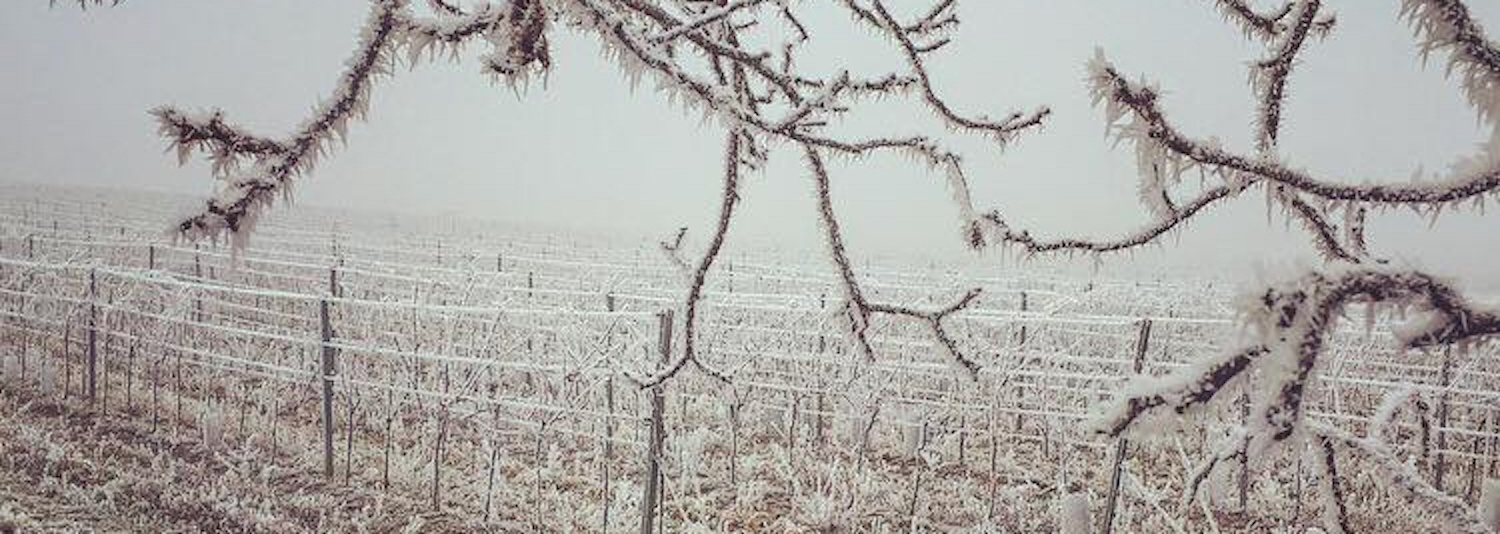

Pfneisl, Burgenland, Austria
Born and raised in Austria, Birgit and Katrin’s grandparents fled their vineyards in Hungarian Sopron to escape Communism and settled just across the border in Kleinmutschen, Burgenland, where the “z” was dropped from their surname. Birgit organically farms the Kräftner vineyard on mostly sandstone and slate soils.
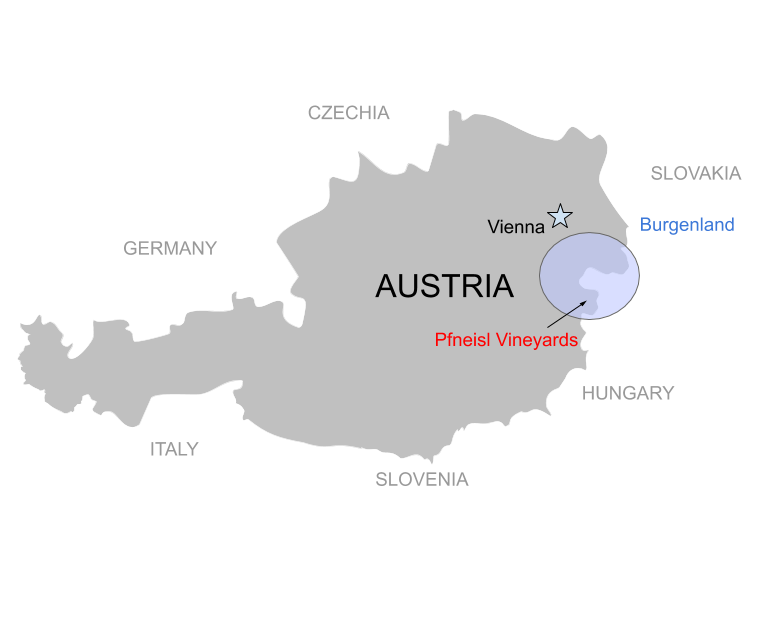
At a Glance
2004
http://www.pfneiszl-vineyards.com/
Burgenland
Continental
Heavy loam soil
180m
Vineyards and densely forested hillsides, climatic influence of Lake Neuisiedl
Blaufränkisch, Zweigelt, Merlot
Organic
Natural
http://www.pfneiszl-vineyards.com/
Burgenland
Continental
Heavy loam soil
180m
Vineyards and densely forested hillsides, climatic influence of Lake Neuisiedl
Blaufränkisch, Zweigelt, Merlot
Organic
Natural
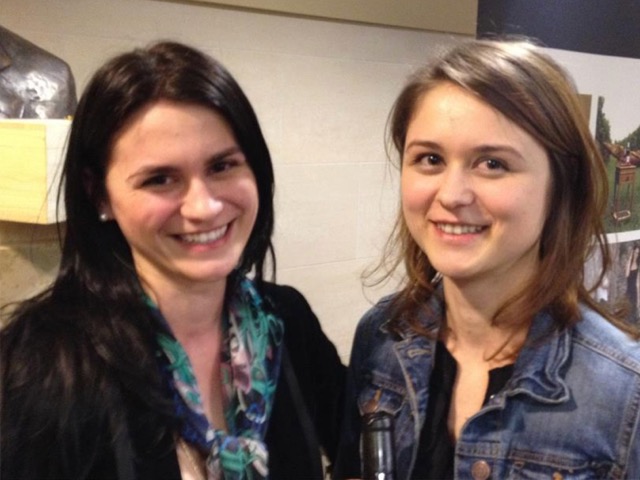
Birgit and Katrin Pfneisl - Photo Credit Pfneiszl Vineyards
The People
Birgit is responsible for the vineyards and winemaking, Katrin marketing and sales. Born and raised in Austria, their grandparents fled their vineyards in Sopron to escape Communism and settled just across the border in Kleinmutschen, Burgenland, where the “z” was dropped from their surname. In 93’ the Pfneisl family re-acquired their Hungarian vineyards. Having since established Weingut Pfneisl, one of Austria’s premier red wine estates, Birgit and Katrin’s father Franz Pfneisl and his brothers, decided to give these ancestral vineyards to the sisters.
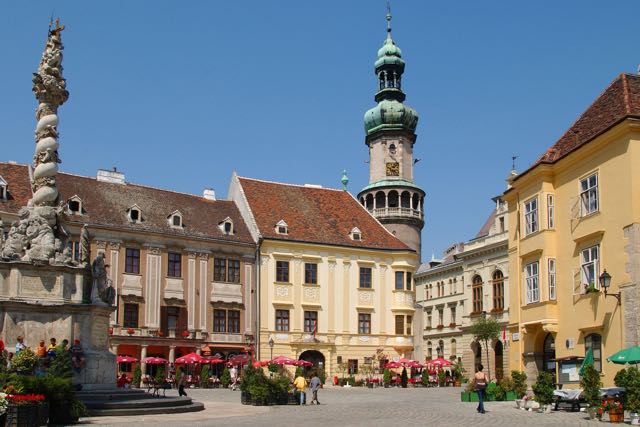
Downtown Sopron
After completing her University studies, Birgit set out to work far away from home. She made wine in Italy, Australia, New Zealand, South America and the US before returning home with dreams of an organic estate. Starting with the inaugural 04’ vintage, the Pfneiszl vineyards were farmed organically, in 09’ they were certified Organic. In addition to the fine Kékfrankos, Birgit makes the delightful frizzante Sparkelina, a stylish Merlot, and a range of thoughtful cuvees.

Downtown Sopron
After completing her University studies, Birgit set out to work far away from home. She made wine in Italy, Australia, New Zealand, South America and the US before returning home with dreams of an organic estate. Starting with the inaugural 04’ vintage, the Pfneiszl vineyards were farmed organically, in 09’ they were certified Organic. In addition to the fine Kékfrankos, Birgit makes the delightful frizzante Sparkelina, a stylish Merlot, and a range of thoughtful cuvees.
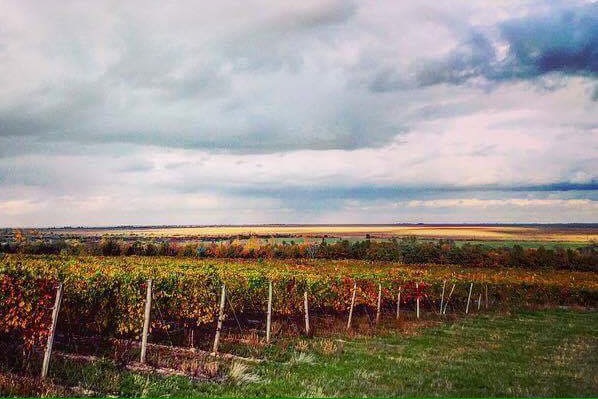
Photo Credit Pfneiszl Vineyards
Vineyards
Sopron is an old Hungarian wine village just west of the southern tip of Lake Fertö (Neusiedler See). The prized vineyards around it are mostly Austrian, though what is Hungarian is ideal. Most of the Pfneiszl vineyards are in the dry farmed, slate and sand stone site of Kräftner. This south east facing slope was replanted about 12 years ago, healthy plots of old vines were left intact. Varieties include, numerous clones of Kékfrankos, some as old as 35 years, Merlot, Zenit (a local white grape), and small amounts of Sangiovese, Malbec, Zinfandel and Shiraz.
Birgit employs a wide range of organic techniques ranging from standard practices like native crop cover to less conventional methods like insect pheromones. Birgit’s decision to pursue organic farming was at first controversial. Idealistic in nature, organic farming in reality is challenging and risky. So far, Birgit’s idealism and intuition are paying off.
Birgit employs a wide range of organic techniques ranging from standard practices like native crop cover to less conventional methods like insect pheromones. Birgit’s decision to pursue organic farming was at first controversial. Idealistic in nature, organic farming in reality is challenging and risky. So far, Birgit’s idealism and intuition are paying off.
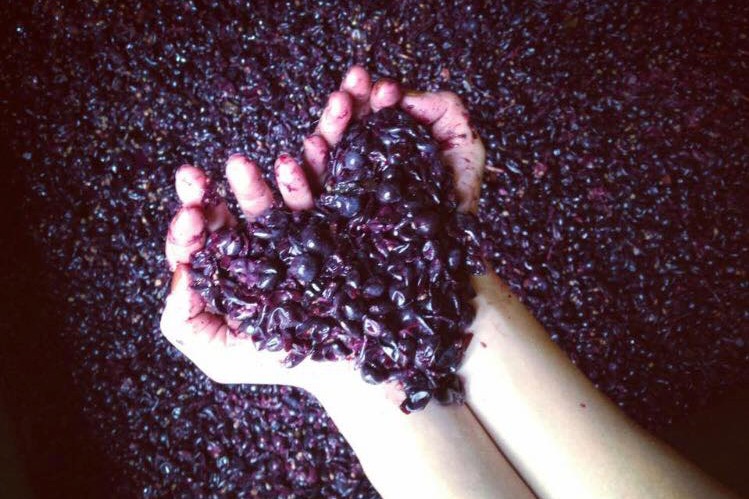
Photo Credit Pfneiszl Vineyards
Winemaking
Grapes are sorted and de-stemmed at the winery. Fermentation is conducted exclusively with native yeast. The Classic line of wines are fermented and aged in stainless steel while premium wines are aged in a combination of new and used oak, mostly of Hungarian or French stock. Malolactic fermentation is encouraged to finish though not demanded and a small amounts if residual sugar are permitted if a wine does not ferment completely dry. Most wines are lightly filtered.

Red Wine , Organic
Blaufränkisch;
13.5%
4.4 g/l
4.9 g/l
Blaufränkisch;
13.5%
4.4 g/l
4.9 g/l
A little like Gamay, a little like Cab Franc, Blaufränkisch is a site expressive noble sort capable of profundity and fun. Birgit and Katrin Pfneisl are both. Rather than make wine with their father and uncles who run the well established family estate in Austria, the sisters decided to farm their ancestral vines in Sopron, Hungary, where Blaufränkisch is Kékfrankos and Pfneisl is Pfneiszl. Organic farming, old vines and wild fermentation, their wines contrasted sharply with those of their elders: lighter, prettier, less structured and more aromatic. Their Kékfrankos has always been more Blaufränkisch than most Blaufränkisch so we were happy to discover Birgit and Katrin's increasing involvement in the Austrian estate and immediately taken with the results. Blaufränker is that wine: a collaborative wine project born from the common goal of deepening our relationships with each other and this love-able grape.

Red Wine , Organic
Blaufränkisch;
13.1%
6.2 g/l
5.2 g/l
Blaufränkisch;
13.1%
6.2 g/l
5.2 g/l
A little like Gamay, a little like Cab Franc, Blaufränkisch is a site expressive noble sort capable of profundity and fun. Birgit and Katrin Pfneisl are both. Rather than make wine with their father and uncles who run the well established family estate in Austria, the sisters decided to farm their ancestral vines in Sopron, Hungary, where Blaufränkisch is Kékfrankos and Pfneisl is Pfneiszl. Organic farming, old vines and wild fermentation, their wines contrasted sharply with those of their elders: lighter, prettier, less structured and more aromatic. Their Kékfrankos has always been more Blaufränkisch than most Blaufränkisch so we were happy to discover Birgit and Katrin's increasing involvement in the Austrian estate and immediately taken with the results. Blaufränker is that wine: a collaborative wine project born from the common goal of deepening our relationships with each other and this love-able grape.

White Wine , Organic
Zefir;
10.5%
1 g/l
5.3 g/l
Zefir;
10.5%
1 g/l
5.3 g/l
The aromatics of Zefír often trigger a strong olfactory memory of my 8th grade white flower heavy prom corsage, but the acidity, weight and light skin contact tie the whole thing together. This is a little known grape in Hungary (200 hectares total) and is likely the only 100% version exported to the US. It was created in Hungary in the early 1950s during the Soviet dictated COOP era. The name itself is
also emblematic of this heyday of the Eastern Bloc. A number of other crossings like Zenit, Zengő, Zeusz, and Zéta were also created in the early 1950s by Ferenc Király. All of these “Z” grapes were inspired by the Greek God of the wind and the messenger of Spring "Zephyr." At the time, it was thought that the crossing of Zefír was Hárslevelű and Leányka. Others believed that instead of Leányka, the other parent
was Fetească Albă. Regardless, recent DNA has disproved both claims and the full parentage is unknown. Nevertheless, with 10 days of maceration in open vats, full MLF and bottled unfiltered, the extra skin contact tames the extremely high acidity (most of it goes into sparkling wines elsewhere in the country) and still holds onto the explosion of white flowers.

Red Wine , Organic
Zweigelt;
13%
4.8 g/l
5 g/l
Zweigelt;
13%
4.8 g/l
5 g/l
Another fun and delicious project from sisters Birgit and Katrin Pfneisl. Rather than make wine with their father and uncles who run the well established family estate in Austria, the sisters decided to farm their ancestral vines in Sopron, Hungary. From the outset, their wines contrasted sharply with those of their elders. Organic farming, old vines and wild fermentation, all contribute to the finesse of their wines. They're lighter, prettier, less structured, more aromatic, so we were happy to discover Birgit and Katrin's increasing involvement in the Austrian estate. The Austrian Zweigler is another collaborative project born from the common goal of deepening our relationships with each other and our common love of Austria's dearest red grape, Zweigelt.

Red Wine , Organic
Zweigelt;
12.6%
6.1 g/l
5.3 g/l
Zweigelt;
12.6%
6.1 g/l
5.3 g/l
Another fun and delicious project from sisters Birgit and Katrin Pfneisl. Rather than make wine with their father and uncles who run the well established family estate in Austria, the sisters decided to farm their ancestral vines in Sopron, Hungary. From the outset, their wines contrasted sharply with those of their elders. Organic farming, old vines and wild fermentation, all contribute to the finesse of their wines. They're lighter, prettier, less structured, more aromatic, so we were happy to discover Birgit and Katrin's increasing involvement in the Austrian estate. The Austrian Zweigler is another collaborative project born from the common goal of deepening our relationships with each other and our common love of Austria's dearest red grape, Zweigelt.